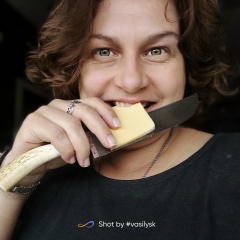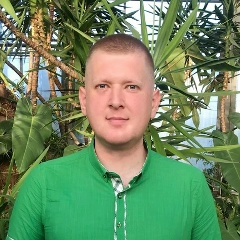...То, что мои соседи по пансиону принимали за участие, было на самом деле лишь проявлением сентиментальной жалости, помогавшей им легче переносить зрелище чужих страданий, - жалости, которая нисколько не подбадривала, а наоборот, ослабляла, подрывала волю к борьбе, убивала всякую надежду, желание чего-либо добиваться.
Душевное волнение, которое они испытывали при виде калеки, было им неприятно, пробуждало у них первобытный страх перед возможным физическим разрушением, и они пытались отделаться от этого чувства, произнося слова сострадания.
Это было сострадание с позиции силы; выражая сочувствие к ближнему, свою тревогу за его судьбу, они вырастали в собственных глазах, убежденные, что их чувства порождены бескорыстием и добротой, а не являются простой самозащитой.
Чувства эти отнюдь не побуждали их к действиям, а наоборот, заставляли прятаться в свою скорлупу. Они отстранялись от ответственности, которую возлагают на все человеческое общество страдания отдельных людей, воздерживались от поступков, которые потревожили бы их благодушное самодовольство, показали бы им всю непрочность их собственного благополучия.
Никто из них не замечал трудностей, которые мешали жить им самим, - трудностей, которые делали их неуравновешенными, разочарованными, заставляли без счета глотать таблетки аспирина и то и дело обращаться к врачам.
Морщины, испещрившие их лица, бессонница, на которую они часто жаловались, бесконечное хождение из угла в угол в весенние вечера, внезапные вспышки раздражительности - все это говорило об их бедах не менее красноречиво, чем костыли о моих.
Всем нам что-то мешало жить.
Самой большой помехой для меня были не костыли, а мнение людей, с которыми меня сталкивала жизнь, их отношение ко мне.
Алан Маршалл "Это трава".
Душевное волнение, которое они испытывали при виде калеки, было им неприятно, пробуждало у них первобытный страх перед возможным физическим разрушением, и они пытались отделаться от этого чувства, произнося слова сострадания.
Это было сострадание с позиции силы; выражая сочувствие к ближнему, свою тревогу за его судьбу, они вырастали в собственных глазах, убежденные, что их чувства порождены бескорыстием и добротой, а не являются простой самозащитой.
Чувства эти отнюдь не побуждали их к действиям, а наоборот, заставляли прятаться в свою скорлупу. Они отстранялись от ответственности, которую возлагают на все человеческое общество страдания отдельных людей, воздерживались от поступков, которые потревожили бы их благодушное самодовольство, показали бы им всю непрочность их собственного благополучия.
Никто из них не замечал трудностей, которые мешали жить им самим, - трудностей, которые делали их неуравновешенными, разочарованными, заставляли без счета глотать таблетки аспирина и то и дело обращаться к врачам.
Морщины, испещрившие их лица, бессонница, на которую они часто жаловались, бесконечное хождение из угла в угол в весенние вечера, внезапные вспышки раздражительности - все это говорило об их бедах не менее красноречиво, чем костыли о моих.
Всем нам что-то мешало жить.
Самой большой помехой для меня были не костыли, а мнение людей, с которыми меня сталкивала жизнь, их отношение ко мне.
Алан Маршалл "Это трава".
... The fact that my boarding-house neighbors took part in it was, in fact, only a manifestation of sentimental pity, which helped them more easily bear the sight of other people's suffering, a pity that did not at all cheer, but, on the contrary, weakened, undermined the will to fight, and killed all hope, desire to achieve something.
The emotional excitement that they experienced at the sight of the cripple was unpleasant for them, aroused their primitive fear of possible physical destruction, and they tried to get rid of this feeling by pronouncing words of compassion.
It was compassion from a position of strength; expressing sympathy for the neighbor, their anxiety for his fate, they grew up in their own eyes, convinced that their feelings were generated by selflessness and kindness, and were not simple self-defense.
These feelings did not prompt them to action, but, on the contrary, forced them to hide in their shells. They removed themselves from the responsibility that all human society places on the suffering of individuals, refrained from actions that would disturb their complacent complacency, and show them all the fragility of their own well-being.
None of them noticed the difficulties that prevented them from living themselves - the difficulties that made them unbalanced, disappointed, forced them to swallow aspirin tablets without counting and now and then turn to doctors.
The wrinkles that streaked their faces, the insomnia they often complained about, endless walking from corner to corner on spring evenings, sudden flashes of irritability - all this spoke about their troubles no less eloquently than crutches about mine.
Something prevented us all from living.
The biggest obstacle for me was not crutches, but the opinion of the people that life faced me with, their attitude towards me.
Alan Marshall "It's Grass."
The emotional excitement that they experienced at the sight of the cripple was unpleasant for them, aroused their primitive fear of possible physical destruction, and they tried to get rid of this feeling by pronouncing words of compassion.
It was compassion from a position of strength; expressing sympathy for the neighbor, their anxiety for his fate, they grew up in their own eyes, convinced that their feelings were generated by selflessness and kindness, and were not simple self-defense.
These feelings did not prompt them to action, but, on the contrary, forced them to hide in their shells. They removed themselves from the responsibility that all human society places on the suffering of individuals, refrained from actions that would disturb their complacent complacency, and show them all the fragility of their own well-being.
None of them noticed the difficulties that prevented them from living themselves - the difficulties that made them unbalanced, disappointed, forced them to swallow aspirin tablets without counting and now and then turn to doctors.
The wrinkles that streaked their faces, the insomnia they often complained about, endless walking from corner to corner on spring evenings, sudden flashes of irritability - all this spoke about their troubles no less eloquently than crutches about mine.
Something prevented us all from living.
The biggest obstacle for me was not crutches, but the opinion of the people that life faced me with, their attitude towards me.
Alan Marshall "It's Grass."
У записи 1 лайков,
1 репостов.
1 репостов.
Эту запись оставил(а) на своей стене Мария Федорова






















